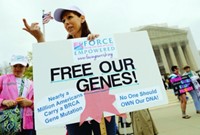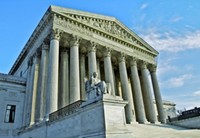Advertisement
Grab your lab coat. Let's get started
Welcome!
Welcome!
Create an account below to get 6 C&EN articles per month, receive newsletters and more - all free.
It seems this is your first time logging in online. Please enter the following information to continue.
As an ACS member you automatically get access to this site. All we need is few more details to create your reading experience.
Not you? Sign in with a different account.
Not you? Sign in with a different account.
ERROR 1
ERROR 1
ERROR 2
ERROR 2
ERROR 2
ERROR 2
ERROR 2
Password and Confirm password must match.
If you have an ACS member number, please enter it here so we can link this account to your membership. (optional)
ERROR 2
ACS values your privacy. By submitting your information, you are gaining access to C&EN and subscribing to our weekly newsletter. We use the information you provide to make your reading experience better, and we will never sell your data to third party members.
Biological Chemistry
Appeals Court Upholds Gene Patents
Biotechnology: Court finds that isolated DNA is eligible for patent protection
by Glenn Hess
August 21, 2012
In a victory for the biotechnology industry, a three-judge panel of the U.S. Court of Appeals for the Federal Circuit has reaffirmed its earlier ruling that isolated human genes can be patented.
In a 2-1 decision, the court on Aug. 16 upheld Myriad Genetics’ right to hold patents on BRCA1 and BRCA2, two genes linked to breast and ovarian cancer. The patents allow the Salt Lake City-based company to be the only U.S. commercial provider of genetic screenings for the diseases through its BRACAnalysis diagnostic test.
A federal judge in 2010 ruled that Myriad’s patents were invalid because human DNA molecules are “products of nature” and thus ineligible for patent protection. The Federal Circuit reversed that decision in 2011, finding that Myriad’s process of extracting and isolating a gene from the human body made the gene chemically distinct from DNA that exists naturally.
But earlier this year, the Supreme Court ordered the same appeals court to reconsider its findings after the high court ruled in a similar case (Mayo Collaborative Services v. Prometheus) that companies cannot patent observations about natural phenomena.
After hearing the Myriad case for the second time, the Federal Circuit said the Supreme Court’s ruling does not apply to isolated DNA. “Permitting patents on isolated genes does not preempt a law of nature,” Circuit Judge Alan Lourie declared in the court’s majority opinion.
“The isolated DNA molecules before us are not found in nature,” Lourie wrote. “They are obtained in the laboratory and are man-made, the product of human ingenuity. While they are prepared from products of nature, so is every other composition of matter.”
The American Civil Liberties Union, which filed the original lawsuit challenging Myriad’s patent claims, says the federal appeals court’s “extremely disappointing” decision “prevents doctors and scientists from exchanging their ideas and research freely.”
Human DNA is a natural entity like air or water, says Chris Hansen, a staff attorney with the ACLU Project on Speech, Privacy & Technology. “It does not belong to any one company.”
Myriad welcomed the Federal Circuit’s decision. “Importantly, the court agreed with Myriad that isolated DNA is a new chemical matter with important utilities which can only exist as the product of human ingenuity,” says Peter Meldrum, the company’s CEO.
The Biotechnology Industry Organization, the industry’s main trade association, says the decision confirms “long-standing law under which valuable DNA preparations, bacterial enzymes, plant-derived antibiotics, and other industrially and medically useful substances can be considered for patenting.”
BIO has argued that a ruling against gene patenting could have a devastating effect on future innovation by discouraging investment in expensive and time-consuming research at U.S. universities and biotech companies.




Join the conversation
Contact the reporter
Submit a Letter to the Editor for publication
Engage with us on Twitter